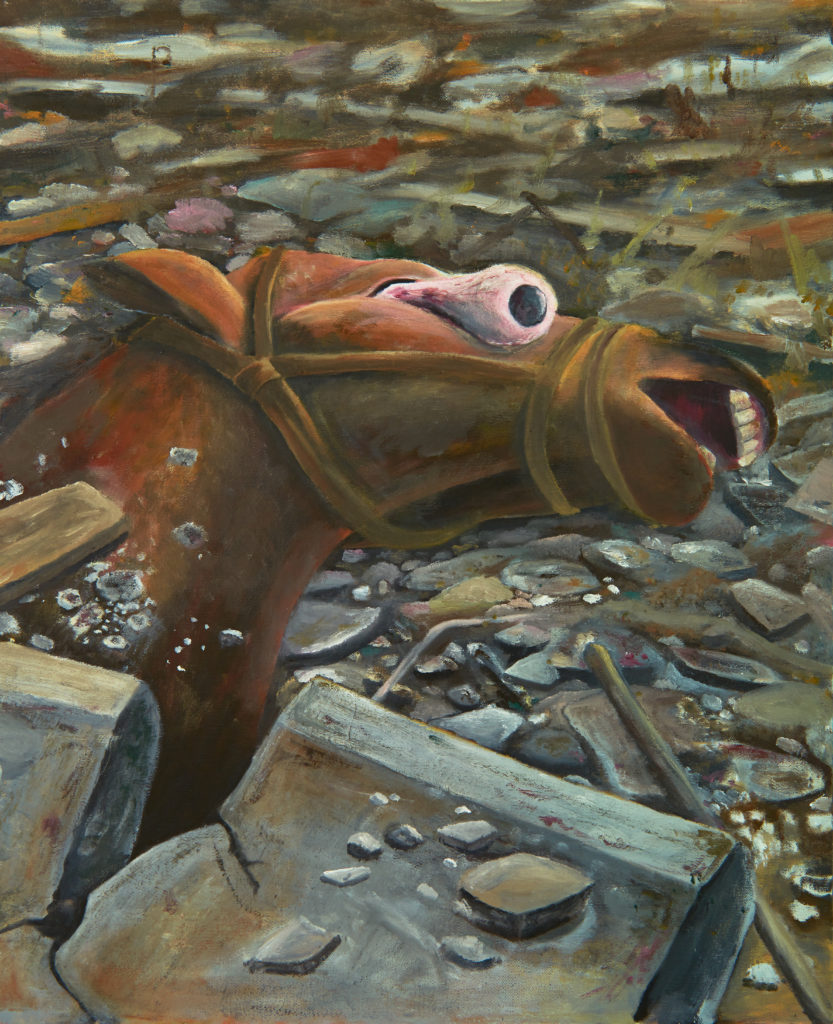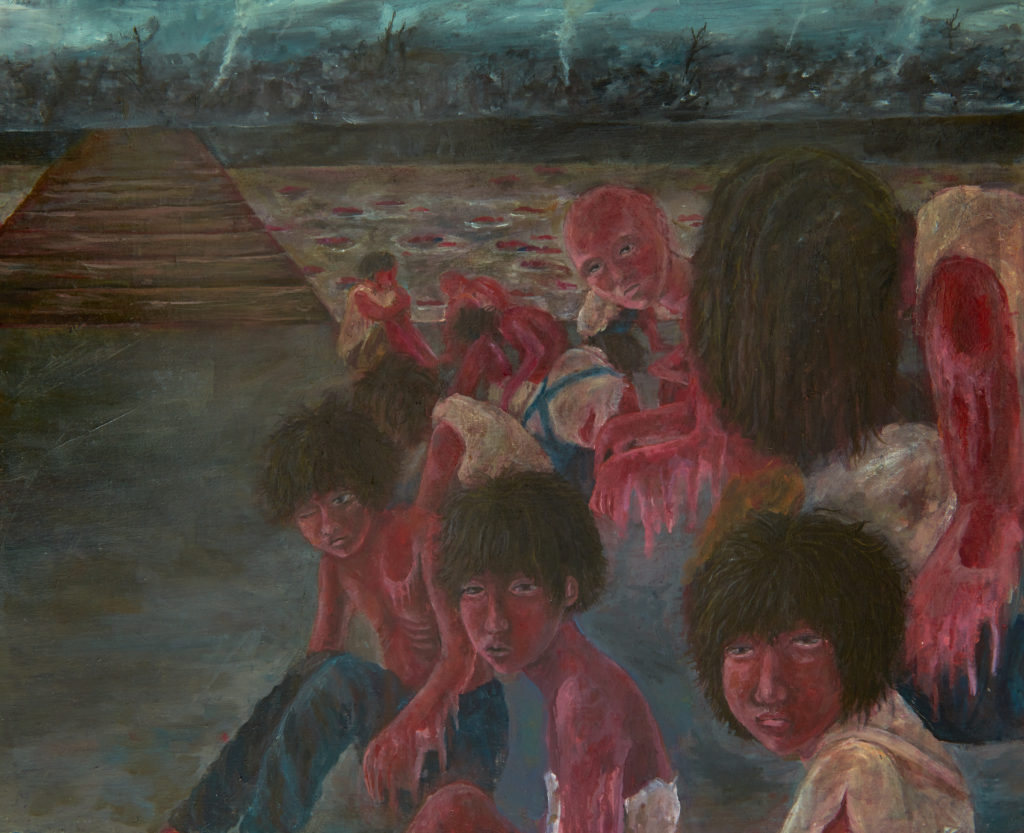Lee Jong-keun
"Don’t stay silent!"--Raise your voice!
4.Back home
I left my workplace at around 4:00 p.m. together with three colleagues who lived in the same direction. Hiroshima Station had completely burnt down. We couldn’t cross the Kojin Bridge, where I had been when the bomb exploded, because the houses around the bridge were in a fierce blaze. We made a detour crossing the Taisho Bridge over the Enko River and headed to the south. Then, we crossed the Tsurumi Bridge over the Kyobashi River. When we came to Hiroshima Liberal Arts and Science University (present Higashi Senda-machi Park), we saw a dead horse under the collapsed wall of the university. Its neck was sticking out of its body, buried in the rubble with its eyes popping out.

From there, we walked to the west and crossed the Motoyasu, Honkawa, Tenma, Fukushima, and Yamate Rivers, looking for bridges that we could cross. In the end, we crossed all seven rivers that flowed through Hiroshima. There were fires all over the city, and as we continued toward the west, we looked for places that we were able to walk to the south or the north in zigzags. At the foot of every bridge, a large number of survivors were sitting with their shoulders close to each other, all staring at us. They might have been thinking that their relatives might come to look for them. They moaned in faint voices, “Please give me water!” “Please give me water!” but we didn’t have anything to give them. We could only pretend not to see them and passed by silently.
When I went to the East Drill Grounds earlier, I saw a lot of burnt and wounded people. However, when I saw a lot of people at the foot of bridges staring at us with wistful eyes, I thought for the first time that hell might be a place like this. Many corpses were floating in every river that we crossed, and it seemed that people who had gotten down to the river avoiding the fire or who had entered the river wanting water might have been washed away and died.

I said good-bye to my colleagues who had been walking with me in Koi and Takasu. By the time I entered the Miyajima road leading to Hatsukaichi, I was alone. Because it was the main road heading west, many military trucks piled up with corpses passed by. Although I raised my hand and called, “Please give me a ride,” none of them stopped. Around Inokuchi, I heard a man shout out, “We’ll definitely avenge you, America!” I just kept walking, thinking, “I don’t think that is possible.” By the time I approached Itsukaichi, it was pitch dark.
I don’t remember exactly what time I finally arrived at my house in Hatsukaichi, but I think it was around 10:00 at night. I left the engine warehouse around 4:00, so I had been walking for about six hours, about 16 kilometers. When I returned home, my sister and two younger brothers were there, but my parents were not there. I asked them where our parents had gone, and they said that when someone had told them that the city was in chaos, they had gone looking for me. I had never told my parents exactly which department in the company I was working at, because if my parents came to see me at work, I would be identified as a Korean because of their accents. Even though they didn’t know my workplace, my parents went out to search for me, and I was grateful for their affection.
My mother came back home around 11p.m. The straw sandals she had been wearing were tattered, and she was almost barefoot. She said she had gotten as far as Itsukaichi. Discouraged when she saw people walking from the city center, she thought her son couldn’t be alive anymore, so she returned home. Seeing me at home, she cried, “Are you alive?”, embracing my black body with the oil applied in the engine warehouse. She contorted her face crying, “Aigo! Aigo!” Aigo! is an interjection used by people in Korea to describe deep emotions. I have never forgotten her face at that time. Then, she wiped the oil off all my body with a rag or a bundle of straw that was beaten to make soft. My skin peeled off, and it hurt a lot. My father had gone all the way to Hiroshima Station but came back home the next evening.